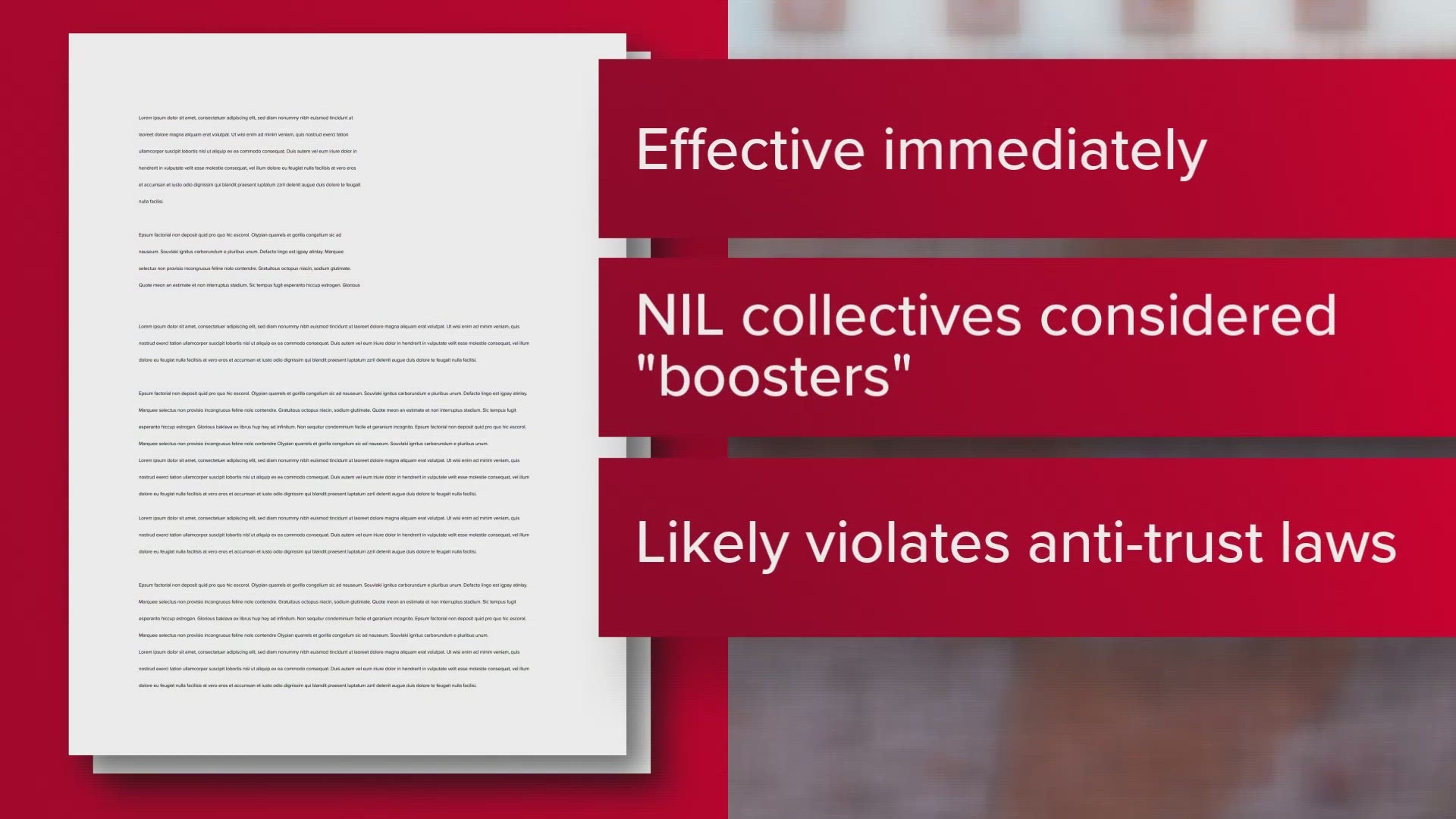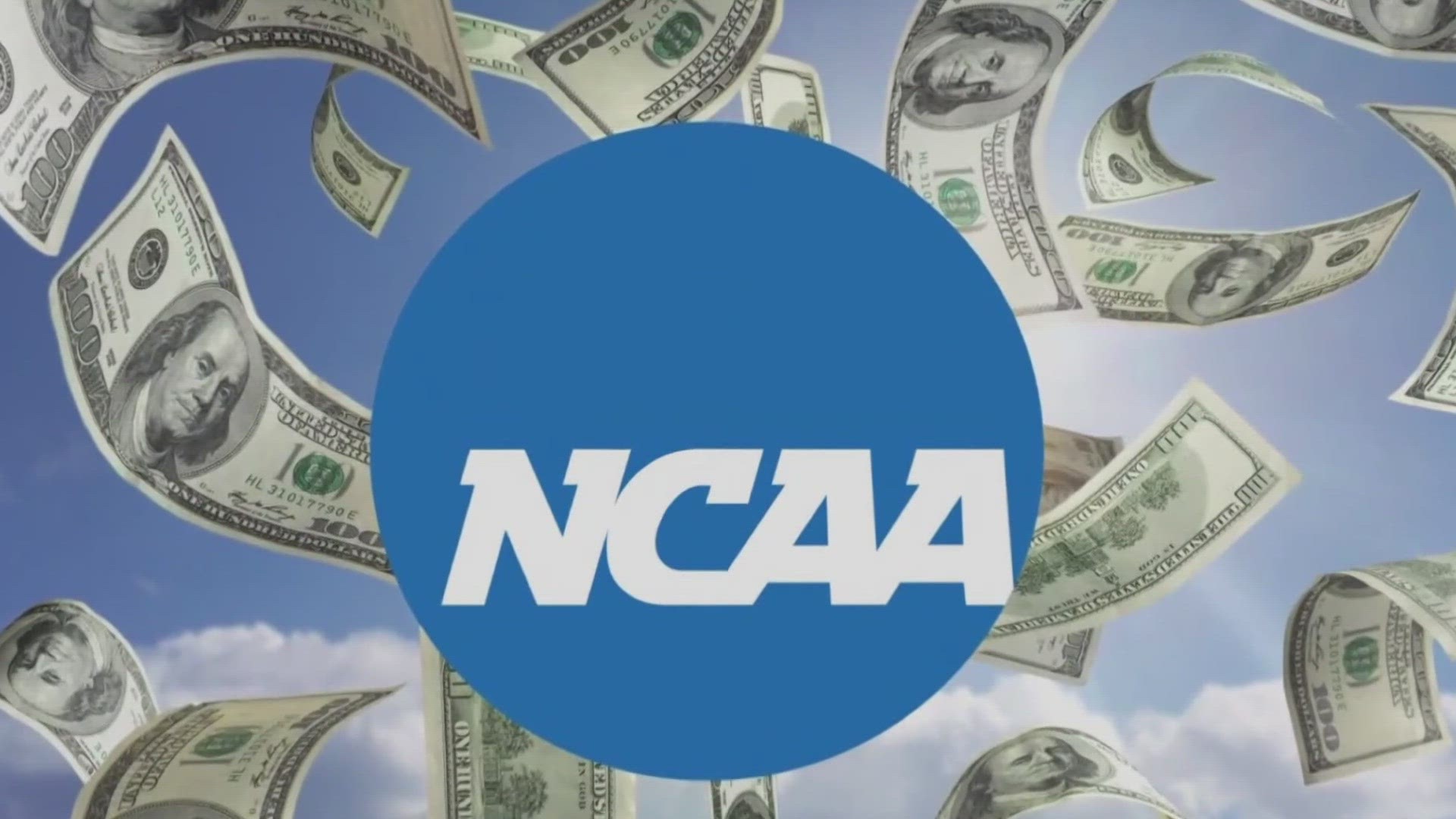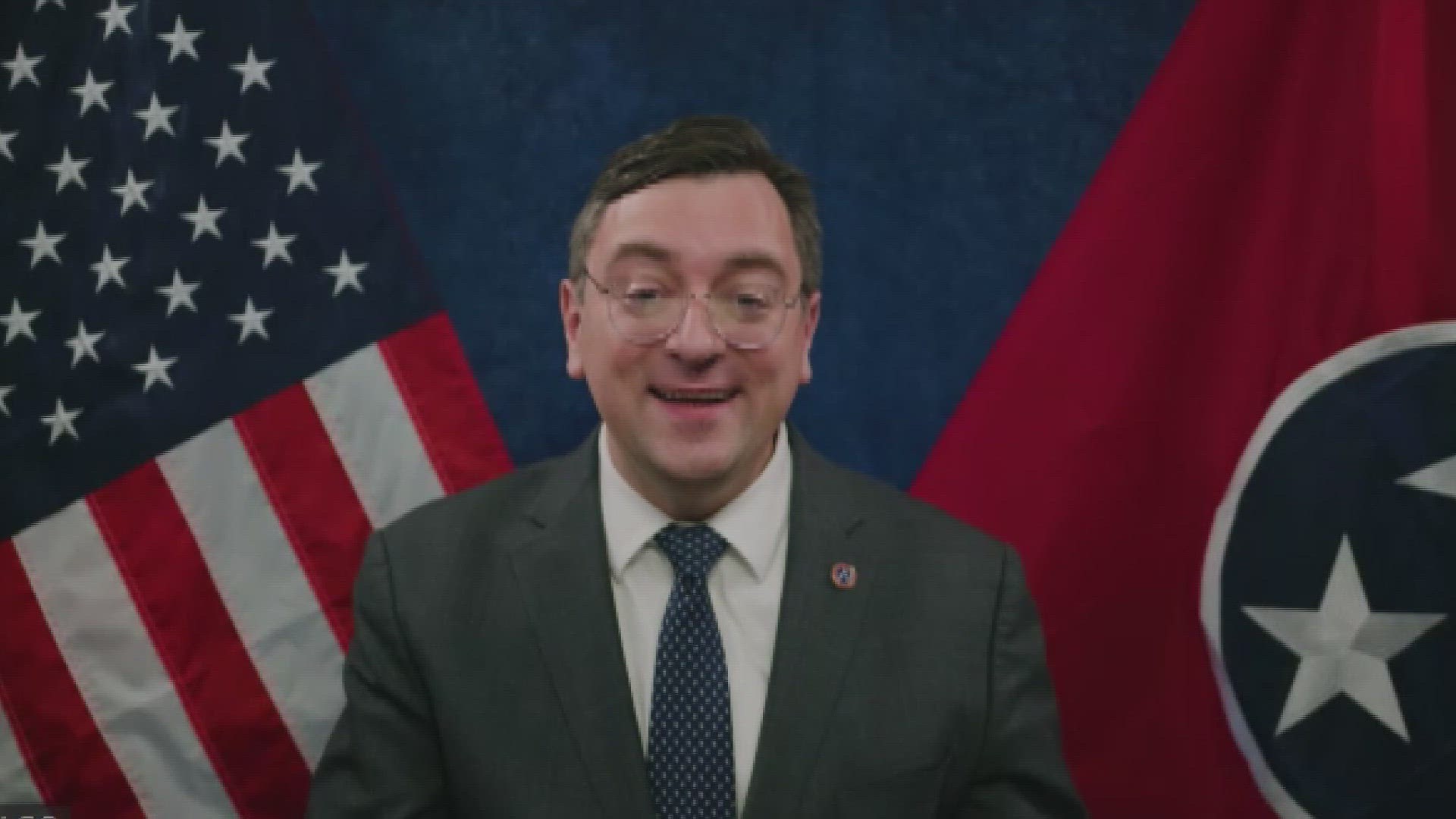GREENEVILLE, Tennessee — A federal judge sided Friday with Tennessee and Virginia, granting their request to temporarily force the NCAA to stop its enforcement of name, image and likeness regulations that have roiled college athletics.
Judge Clifton L. Corker submitted his ruling in response to a Feb. 13 hearing in Greeneville federal court from attorneys for both sides.
Corker earlier this month signaled his sympathies with the states' position, noting federal anti-trust laws appeared to apply to the collegiate sports overseer's conduct. At the time, however, the judge declined to grant a more urgent temporary restraining order they'd sought.
"Agreements between NIL collectives and student-athletes are undoubtedly commercial transactions. It necessarily follows that NCAA rules restricting negotiations of those agreements are also explicitly commercial in nature," the order said.
Corker's order is a blow to the NCAA as it seeks to assert its authority over the evolving business of NIL. The states complain it's applied vague, arbitrary rules to young athletes who want to profit from their accomplishments.
It also likely amplifies the need for the NCAA and the states to try to resolve their differences as quickly as possible. College athletics is a constant machine, always churning out rosters of future players.
The University of Tennessee, a leader in recognizing and trying to accommodate NIL, acknowledged early this year it had become the target of an NCAA investigation involving NIL regulations and recruitment, perhaps including that of star California quarterback Nico Iamaleava.
Chancellor Donde Plowman reacted swiftly and angrily, denying UT had done anything wrong and accusing the NCAA of waffling and inconsistent leadership in the oversight of NIL regulations. Tennessee and Virginia then quickly filed suit against the NCAA in federal court.
NIL deals are administered through collectives that are supposed to operate independently of universities. In 2021, the NCAA issued "interim" guidelines about how they should work.
They generate and pool revenue raised through contributions from a wide variety of sources, including boosters, businesses, fans, and more, the Internal Revenue Service states. That money then goes to student-athletes trying to capitalize on their NIL.
After the states sued this month, the NCAA issued a rare public response: "While the NCAA generally does not comment on specific infractions cases, it is important to remember that NCAA member schools and conferences not only make the rules but routinely call for greater enforcement of those rules and holding violators accountable. In recent years, this has been especially true as it relates to establishing and enforcing a consistent set of national rules intended to manage the name, image and likeness environment.
"(The states' lawsuit) would exacerbate what our members themselves have frequently described as a “wild west” atmosphere, further tilting competitive imbalance among schools in neighboring states, and diminishing protections for student-athletes from potential exploitation."
Tennessee Attorney General Jonathan Skrmetti spoke to the media outside the Greeneville courthouse after the Feb. 13 hearing.
"The lack of clarity is hurting student-athletes," he said. "The lack of opportunity to make informed decisions is hurting student-athletes. It's not right and it's not legal. Federal anti-trust law guarantees them the benefit of a free market, and we're going to keep fighting to ensure that that's what they get."
The NCAA said it is reviewing the decision and would community with schools about possible policy changes. It also said it's seeking to partner with Congress to pass national legislation on NIL deals. A statement from the NCAA is available below.
"Turning upside down rules overwhelmingly supported by member schools will aggravate an already chaotic collegiate environment, further diminishing protections for student-athletes from exploitation. The NCAA fully supports student-athletes making money from their name, image and likeness and is making changes to deliver more benefits to student-athletes, but an endless patchwork of state laws and court opinions make clear partnering with Congress is necessary to provide stability for the future of all college athletes."



